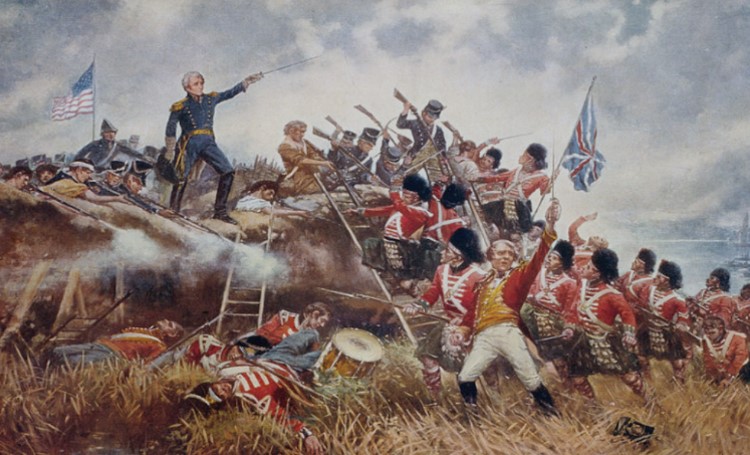
Battle of New Orleans.
Thursday, July 16, 2020
This Blog Now Closed Due to Confederadication
I have eight blogs (which are eight blogs too many, believe me, but I enjoy doing the research and writing them). However, there is a new chapter being written in U.S. history, for better or worse. I believe it is for the worse, but anyway, it needs to be covered, especially from the other, much-maligned side. And, I sure hope this does not turn into a race war.
Sadly, the media is mostly against us. And, at times it seems that everybody is against us.
Keeping up with the continual and massive numbers of attacks is very time consuming and I have decided to temporarily close many of my other blogs while I do that.
I'm calling these attacks on the former Confederacy the Confederadication. I put the words Confederate, the victim of these attacks, together with the word eradication, the objective of the other side. Dropping the 'te" from Confederate I noticed we already had the first three letters of eradication.
And there we were.
I am covering this in my Civil War II: The Continuing War of the Confederacy blog.
So Until the Last Confederate Statue Comes Down and Last Vestige of the Confederacy Removed, This Blog will be Closed. --Brock-Perry
Tuesday, July 7, 2020
The Career of Thomas Macdonough-- Part 3: A Complete American Victory
Thomas Macdonough immediately took advantage of the situation and using brilliant seamanship and ingenuity, Macdonough maneuvered his ship to fire a broadside into the Confiance causing that ship to surrender.
With the Confiance out of action, the British fleet lost its strongest ship, the remaining enemy ships were pounded by the Americans and it became a total victory for Macdonough's fleet.
The result was a total victory at the Battle of Plattsburgh (also called Battle of Lake Champlain) The British withdrew to Canada and the British got serious about negotiating a peace.
--Brock-Macdonough
Saturday, July 4, 2020
The Career of Thomas Macdonough-- Part 2: A Big Break for the Americans
The British came with both Army soldiers under the command of George Prevost and a Naval fleet under the command of George Downie. Downie was a very experienced sea man who had attained much success fighting against France during the Napoleonic Wars. He was he commander of the HMS Confiance.
Defending Plattsburgh was a much smaller American force of some 2,000 men under the command of General Alexander Macomb and, of course Macdonough's which was also outgunned. Things looked bleak for the Americans.
Macdonough's fleet met head on with British fleet on September 11, 1814. In a moment that changed the course of the battle, a cannonball fired by Macdonough's flagship, the USS Saratoga, smashed into a British cannon on the Confiance causing it to land on Downie, killing him instantly.
--Brock-Macdonough
The Career of Thomas Macdonough-- Part 1
From Classic NY History "Macdonough Monument: History of Plattsburgh's Famous Monument" by Brian Kachijian.
Thomas Macdonough began his naval career in 1800. He was born on New Year's Eve 1783 and was an orphan by the age of twelve. His father served in the American Revolution.
He began naval service at the age of sixteen and served in the Barbary War against Algiers, Morocco, Tunis and Tripoli. After that, he became captain of a merchant ship named the Gullivar that transported goods between New York, England and India.
Upon the declaration of war between the U.S. and England, he returned to New York and was on his way to greatness. He was placed in charge of naval forces on Lake Champlain at Plattsburgh, N.Y., where he oversaw the construction of American warships.
--Brock-Macdonough
Thursday, July 2, 2020
What Teddy Roosevelt Had to Say About Macdonough
From Wikipedia. Thomas Macdonough.
Theodore Roosevelt 1882
"Macdonough in this battle won a higher fame than any other commander of the war, British or American. he had a decidedly superior force to contend against, the officers and men of the two sides being about on par in every respect; and it was solely owing to his foresight and resource that we won this battle.
He forced the British to engage at a disadvantage by his excellent choice of position; and he prepared beforehand for every possible contingency.
His personal prowess had already been shown at the cost of the rovers of Tripoli, and in this action he helped fight the guns as ably as the best sailor. His skill, seamanship, quick eye, readiness of resource, and indomitable pluck, are beyond all praise.
Down to the time of the Civil War he is the greatest figure in our naval history.
High Words of Praise Indeed. --Brock-Perry
Maybe I should sign off with Brock-Macdonough instead of Brock-Perry?
Subscribe to:
Posts (Atom)
